COVID‑19, the disease caused by the novel coronavirus, has killed nearly 600 people in Ukraine as of May 21.
Each death is a tragedy. Bereaved relatives have been unable to say goodbyes or hold proper funerals for their loved ones due to quarantine restrictions. Some have faced social stigma. Others have doubted the cause of death itself, questioning the accuracy of testing and capabilities of the health care system.
The Kyiv Post spoke to relatives of several victims of COVID‑19 to hear their stories.
Oleg Vynnytskyi: Ternopil priest wrongly pilloried as virus spreader
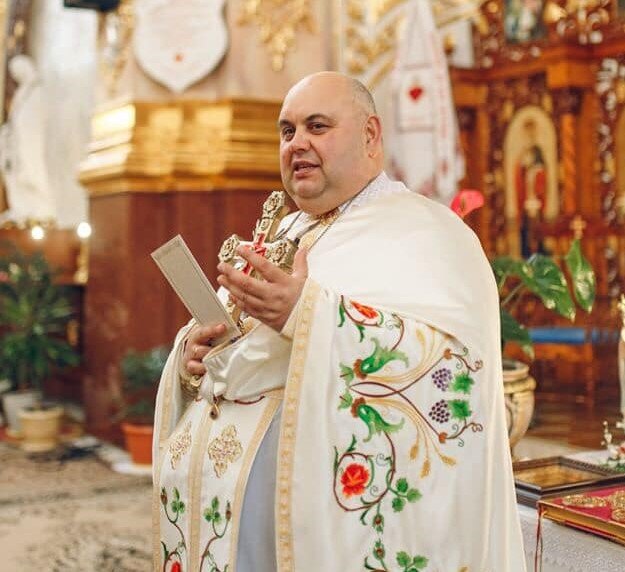
Oleg Vynnytskyi, 57, a priest in Zalishchyky, Ternopil Oblast (Courtesy)
Oleg Vynnytskyi, 57, died on April 6, 10 days shy of his 25th anniversary as the head priest of the Ukrainian Greek Catholic Church in Zalishchyky, a town two hours away from Ternopil.
He tested positive for COVID‑19 on March 20, becoming this western region’s first confirmed case.
Vynnytskyi’s name appeared in local and national news when he was suspected of infecting an elderly man who later died after both attended the same funeral in early March. Moreover, Ukraine’s deputy interior minister wrote on Facebook that the priest had come into contact with some 500 people while already infected with the coronavirus.
A humble rural priest, Vynnytskyi didn’t take the unwanted media spotlight and gossip lightly. He was upset seeing how his congregation grew divided over his diagnosis. Some people expressed compassion, while others accused him of being a virus spreader.
Vynnytskyi’s daughter, Yulia Lenyk, said over the phone that, after the news broke about her father’s illness, their family was bullied and their neighbors demanded that the local authorities evict them from the building.
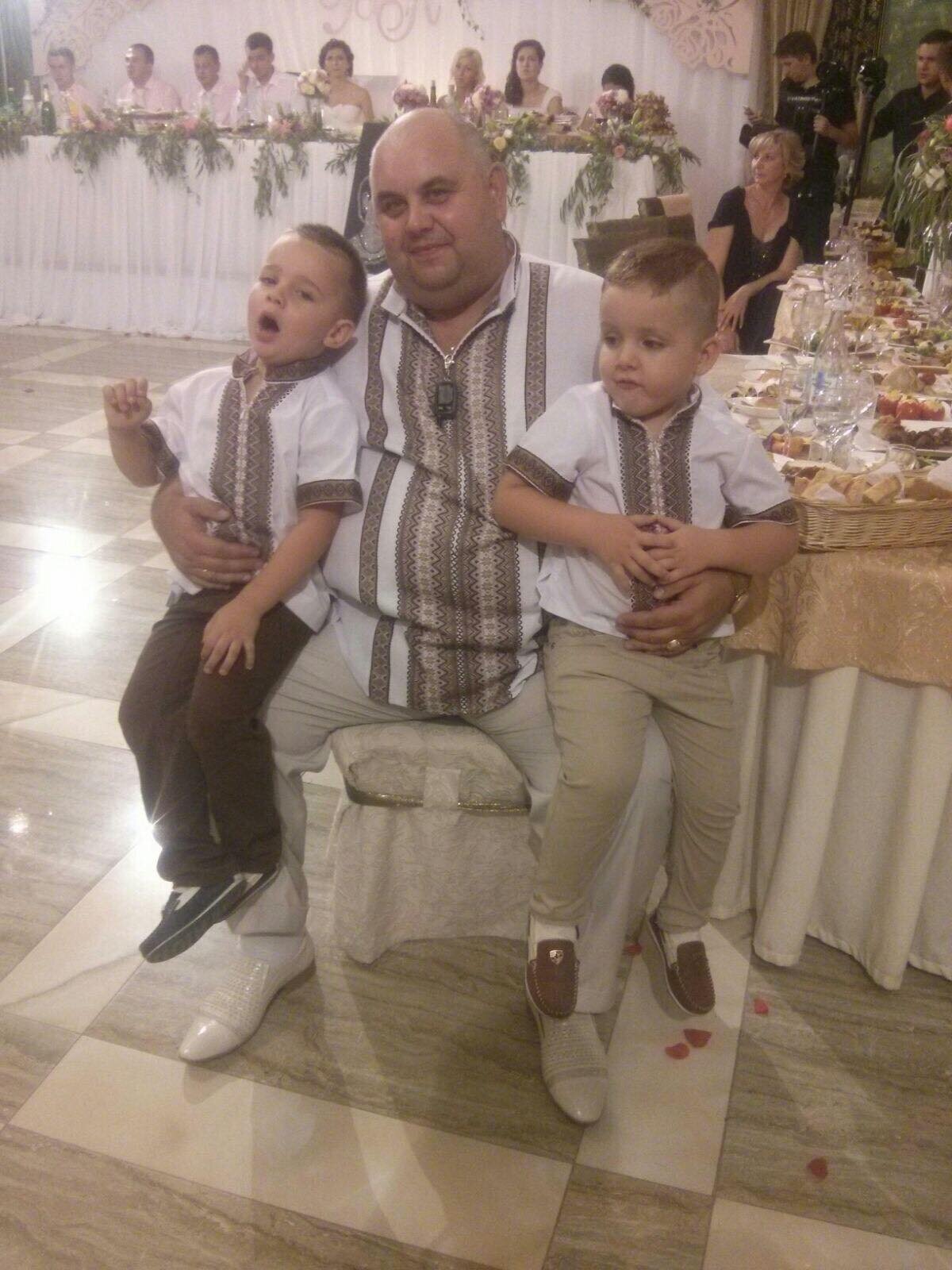
Oleg Vynnytskyi with grandsons (Courtesy)
Epidemiological analysis later revealed that Vynnytskyi was not “patient zero” in Ternopil Oblast. It is likely that he was infected at the funeral on March 3 in Shveikiv, a village of 700 people which epidemiologists named the probable ground zero of a regional outbreak. How exactly the coronavirus emerged in that village is unknown, but one theory suggests it could have been brought by a returnee from abroad.
On March 13, Vynnytskyi experienced a fever. He called a general practitioner who prescribed him antipyretics. The next day he felt better and held three Sunday services at his church and conducted one funeral ceremony. The Ukrainian authorities officially banned religious gatherings of over 10 people starting March 17. By that time, Vynnytskyi’s health had worsened. He went to a hospital for an X-ray, where doctors suspected he had COVID‑19. On March 20, doctors informed him that his polymerase chain reaction (PCR) test came negative. But, later that day, they called back with the opposite result.
Lenyk says the family still doubts the diagnosis. She, her husband and their two young kids lived with her parents in one flat. They all attended that funeral in Shveikiv and later showed similar symptoms, she said.
“We all had fever and cough, but only my father was diagnosed with COVID‑19, and the rest of the family were diagnosed with acute respiratory disease,” she said.
According to her, none of the 30 people among the priest’s family, church staff and churchgoers who were tested for the coronavirus had it.
“Was it a miracle?” she said skeptically.
A week before his death, Vynnytskyi was unconscious connected to a lung ventilator. He also suffered thrombosis — dangerous blood clots that sometimes develop in COVID‑19 patients.
Having held many funeral ceremonies over two-and-a-half decades in the priesthood, Vynnytskyi was buried without one. His family was not allowed at his grave and had to mourn from a distance. His priest friend read the prayer wearing protective hazmat suits, mask and goggles.
However, inside the closed coffin and airtight plastic sack that regulations require for coronavirus victims, Vynnytskyi’s body was dressed in his priest robe and anointed with oil. A nurse at the infectious disease hospital volunteered to perform the ritual. She received instructions by phone from her brother, a priest who had studied with Vynnytskyi many years ago.
“We don’t even know her name but we will always be grateful to her,” Lenyk said. “We wanted to bury my father as a priest.”
Vynnytskyi called the church in Zalishchyky “his third child” that he “raised” since it was built in the mid‑1990s. He also oversaw a church in the neighboring village of Pechorna. His son, Bohdan, followed in his footsteps and also became a priest.
Raisa Malysheva: Ukrainian migrant dies in Italy, far from family
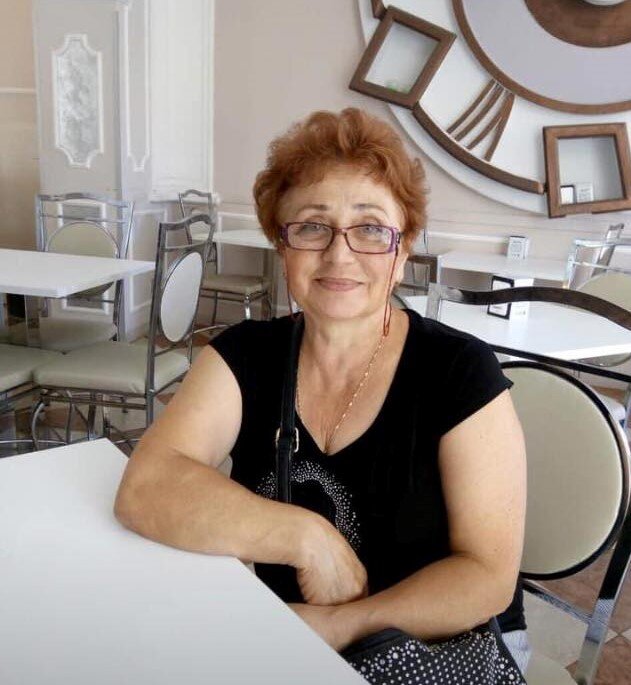
Raisa Malysheva, 65, worked as a caregiver in Italy (Courtesy)
It has been over two months since Kyiv resident Lyudmyla Malysheva lost her mother. She didn’t have a chance to say goodbye to her.
“Every morning I wake up in tears,” she told the Kyiv Post over the phone, weeping. “She was the closest person to me.”
Raisa Malysheva, 66, was the first of eight Ukrainians who died from COVID‑19 abroad. She worked as a caregiver for the elderly in the town of Rovato in the Italian province of Brescia. Northern Italy is among places hardest hit by the coronavirus, and Brescia had the most confirmed cases after Milan.
Malysheva loved Italy, where she had worked for over 15 years. Like most Ukrainian migrants, she went to Europe seeking a better income. She quickly learned Italian and her past experience as a kindergarten principal helped her in the caregiving job.
“She was very soft-hearted. She treated the elderly like children. She would say that they just needed some attention and affection,” her daughter said.
Since the end of August, she had cared for an elderly couple, a 93-year-old man and an 89-year-old woman.
Lyudmyla is convinced that her mother was infected with the coronavirus in a hospital, where she stayed with her 93-year-old patient, who had double pneumonia.
Shortly thereafter, Malysheva was diagnosed with double pneumonia herself and her condition rapidly deteriorated.
“I begged her to go to the hospital but she would say that her employers, the family, asked her to find a replacement. But it was not so easy,” Lyudmyla said. “To this day, I blame myself for not contacting her employers. Last time we talked on March 5, mom could barely speak.”
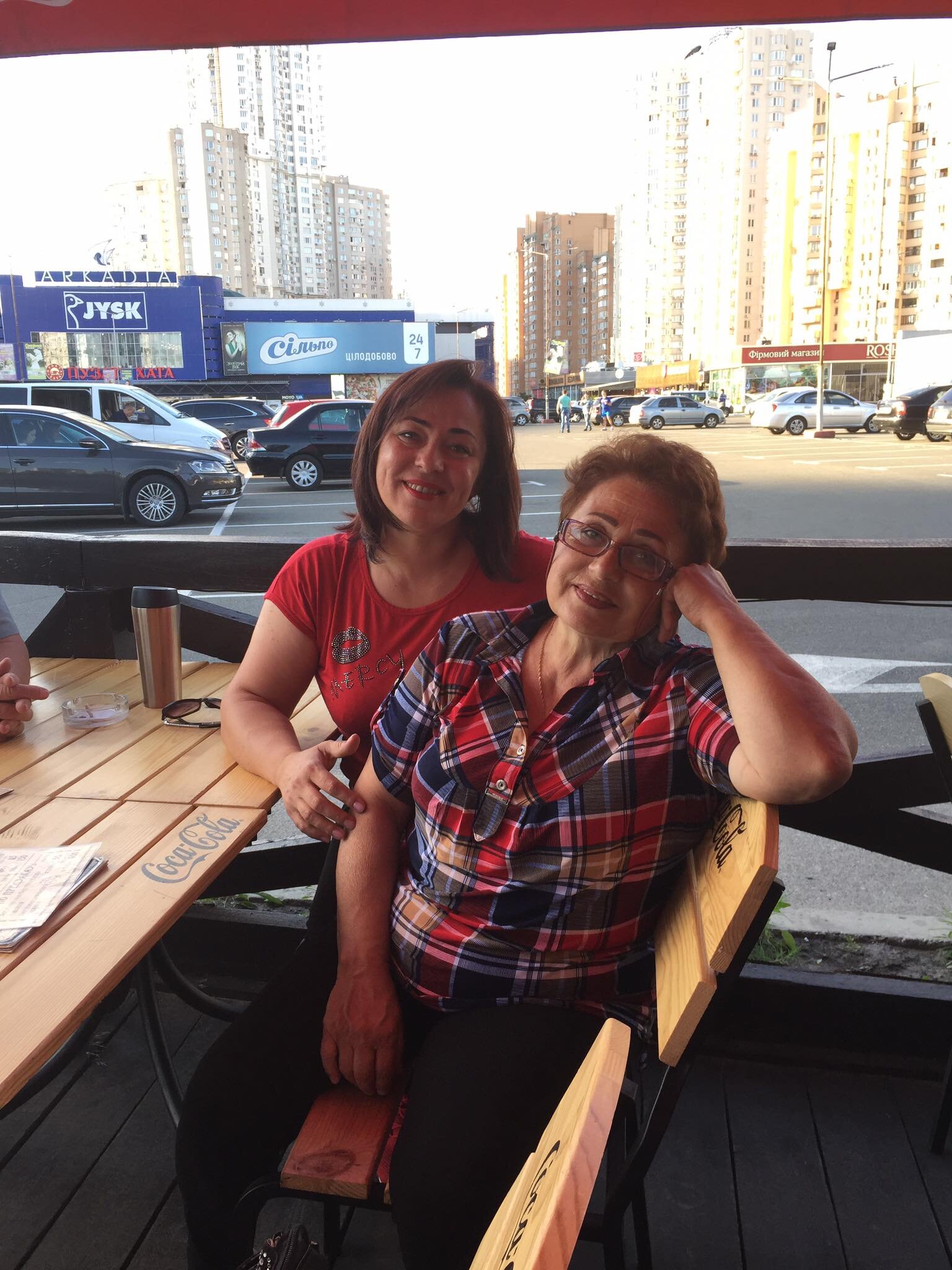
The last photo of Raisa Malysheva with daughter Lyudmyla from June 2019 before she left for Italy. (Courtesy)
Malysheva was hospitalized on March 8, the day northern Italy was placed under lockdown to contain the spread of the coronavirus as new cases surged. She called an ambulance herself.
She texted her daughter that doctors took her sample for the coronavirus test. Then the messages stopped.
Worry-stricken Lyudmyla began searching for her mother. The two women would never go without talking for more than two hours and called each other daily. She managed to get in touch with a volunteer group in Brescia who found her mother in an intensive care unit at a hospital in Chiari, a town near Rovato. Malysheva died on March 13. Her test had reportedly come back positive for COVID‑19 a day earlier.
Lyudmyla says she has not received her mother’s ashes yet, despite the fact that the cremation took place a month ago.
She added that she will have to travel to Italy once borders are open to collect her mother’s belongings. But, more so, she hopes to meet the family that employed her mother.
“I want to look into their eyes and ask: Why?” she said. “I want to hire a lawyer to find out whether they had a right to make her look for a replacement for herself. They should have let her self-quarantine in a separate room and taken her to a hospital.”
Fabrizio Fermondi, whose grandparents Malysheva cared for, said his family liked her. None of them have had COVID‑19.
“When she first got fever and difficulty breathing, my father took her to a private clinic. Doctors found fluid in her lungs (a symptom of pneumonia) and prescribed antibiotics,” he told the Kyiv Post over the phone.
“Then she got worse, she came to my house — I live close to my grandparents — and asked for a thermometer. This was the last time I saw her, on March 8. That day she was taken to a hospital.”
His family worried about Malysheva, he said, and tried to get in touch with her. They received the news about her death from an association of caregivers, Fermondi said.
Ivan and Andriy Frunza: Two brothers die in Chernivtsi Oblast
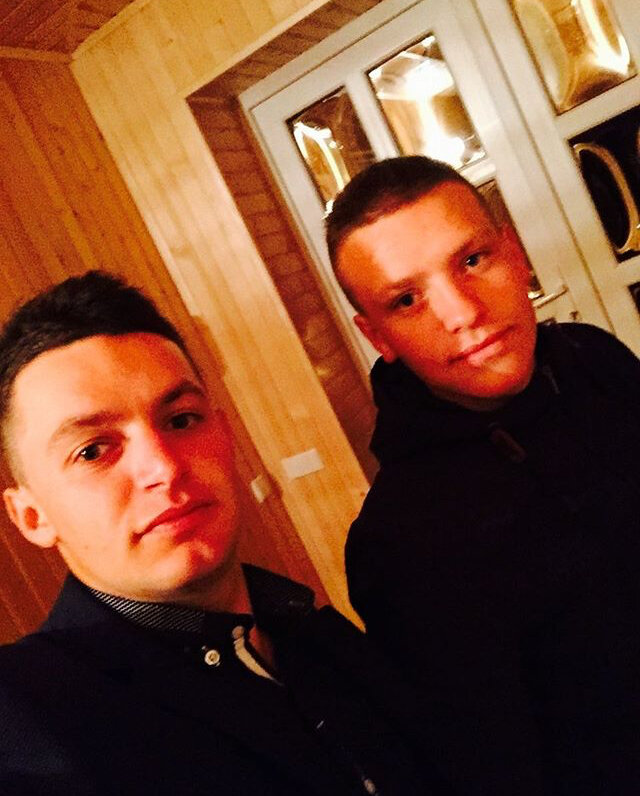
Ivan, 24, and Andriy, 19, Frunza, two brothers from Yizhivtsi, Chernivtsi Oblast (Instagram)
COVID‑19 devastated the Frunza family: Five members came down with coronavirus-like symptoms, and two of them died. Tests confirmed they had COVID-19 after their death.
The family lived in Yizhivtsi, a village some 20 kilometers from the Romanian border. Chernivtsi Oblast, where the village is located, has been hit the worst by the coronavirus in Ukraine so far and accounts for 15% of all confirmed cases.
Brothers Constantine Frunza, 26, and Ivan Frunza, 24, got sick first. Two weeks earlier, at the end of March, they had returned from Belgium, where they worked in construction.
Constantine’s rapid test showed a positive result for COVID-19. He had mild symptoms, so he did not need hospitalization. Ivan, by contrast, had been in the hospital for over a week when their youngest brother Andriy, 19, joined him on April 17 with pneumonia. Soon, their father Aurel, 50, and their grandmother Trandafira, 80, fell sick with a high fever. Their rapid tests for COVID-19 came back negative, but the two were hospitalized anyway. Rapid tests sometimes produce false negative results and diagnosis requires a more accurate PCR test.
Andriy succumbed to the coronavirus after three days in the hospital. He died of double pneumonia and bacterial shock.
“When I received a call from the hospital and heard that concerned voice, my first thought was that something had happened to Ivan,” Constantine told the Kyiv Post over the phone.
He had talked to Andriy the day before his death, and the youngest brother seemed alright unlike Ivan, who at that moment was in the intensive care unit.
Ivan died one day after Andriy, on April 21, with the same diagnosis. The two brothers were buried in one grave.
Constantine recovered and still questions the cause of his brothers’ deaths. He does not know whether their samples had been sent to the laboratory for PCR tests. According to the local authorities, the rapid tests for COVID‑19 conducted for both men were negative and the PCR tests came positive already after their deaths.
The authorities also said in a statement that the brothers came for medical help too late, but Constantine disagrees. He says he and Ivan were under home treatment and visited a general practitioner. When Ivan got worse, they rushed to the hospital but struggled to persuade doctors to admit him.
Their cousin Katya Frunza blames the hospital staff. “I believe their lives could have been saved. The doctors’ negligence, the fact they did not pay attention to the ill (brothers) on time, led to such awful consequences,” she said.
The officials say the opposite: They did everything they could to save the young men’s lives.
“Andriy and Ivan did not have any preexisting conditions, according to their doctor. They were healthy and lived a healthy lifestyle. Wonderful boys, very polite and friendly,” Anatolii Pitul, a chairman of the Chudeysky territorial community, which includes Izhivtsi, told the Kyiv Post.
After Ivan and Andriy died, their father and grandmother asked to be transferred to a regional hospital.
“You can imagine his (Aurel’s) mental state to stay where his children died. He could not cope with it,” said Pitul.
Aurel was recently discharged from the hospital. His mother also recovered earlier this month.
Lyudmyla Hyachas: Cancer patient dies at hospital that couldn’t treat her
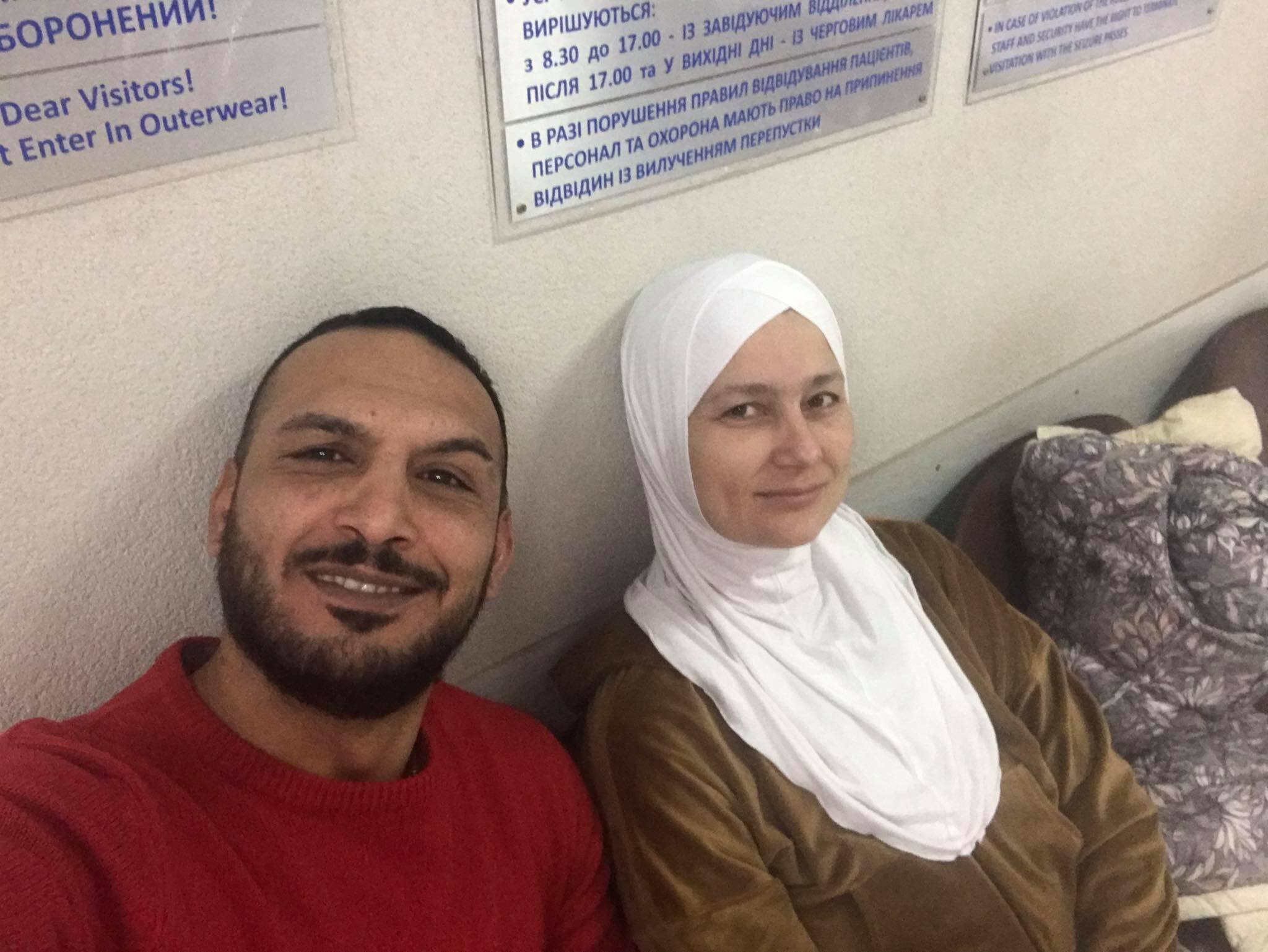
Lyudmyla Hyachas with husband Ahmed Shaar. She converted to Islam after marriage and began wearing hijab after the surgery for liver cancer in January 2020. (Courtesy)
The death of Lyudmyla Hyachas, 41, on May 7 has left her loved ones questioning what actually killed her: COVID‑19 or medical negligence?
Hyachas had lived in Cyprus for the last three years. She met her husband there.
Ahmed Shaar, a Syrian refugee, lived and worked as a ship captain in Larnaca. He and Hyachas fell in love quickly and married in August 2018. Hyachas and her 11-year-old son from a previous relationship would spend most of their time in Cyprus. Both converted to Islam.
“We had a beautiful life,” Shaar told the Kyiv Post over the phone. “We had a house. We would go on a boat to the sea. I taught her Arabic.”
Last fall, Hyachas was diagnosed with liver cancer. The family decided to come to Ukraine for treatment. She had 80% of her liver surgically removed and was undergoing chemotherapy. After the last session in April, she fell sick. She was taken to the hospital by ambulance three times and sent back home each time.
Then, on April 27, her husband brought her unconscious and with internal bleeding to the Kyiv regional cancer treatment center, where she had received chemotherapy. On May 1, a PCR test confirmed she had COVID‑19.
In a May 4 interview with Interfax, the deputy director of the cancer treatment center claimed that Hyachas was transferred “to a specialized infectious disease hospital in Kyiv Oblast.”
In fact, she was taken to a crumbling district hospital in Kaharlyk, a town 80 kilometers away from the capital, which had neither the conditions, nor the specialists to treat a severe case like hers.
Bohdana Marchenko, the godmother of Hyachas’ son, is determined to find out whose decision it was.
“They threw her out to die. Who ordered them to move a cancer patient with internal bleeding to some old hospital outside of Kyiv?” she asked.
She and Shaar both described how nothing indicated that the Kaharlyk hospital was prepared for coronavirus patients. The building was dilapidated, the personnel didn’t wear any protective gear and a polyclinic next door was open to visitors with children.
“She was strong-willed. She was a fighter by character,” Marchenko said. “I believe that she could have lived several years more had she received proper care that she could only get in Kyiv.”
People with cancer are at higher risk of dying from COVID‑19, a study found. Following Hyachas’ death, Patients of Ukraine, a non-profit organization, called for mass testing of patients and doctors in cancer hospitals and for developing a procedure for hospital admission for cancer patients with COVID‑19.
Hyachas’ death left Shaar devastated. He is now stranded in Ukraine due to closed borders and is preparing to take custody of her son. That was her wish, he said.
“She was kind and compassionate. She helped the poor and the sick,” Shaar recalled.
He does not believe his wife had COVID‑19 because none of their friends and family who were with her in her last days got infected.
Hyachas was buried at a Muslim cemetery in Kyiv. Her funeral was organized by the city’s Muslim community.
